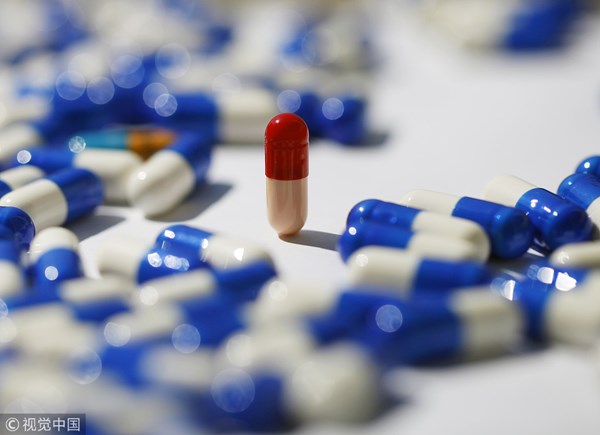'Rampant' abuse in health market seen

[Photo/VCG]
National lawmakers, CPPCC members call for more effective supervisory approaches
National legislators and members of the Chinese People's Political Consultative Conference (CPPCC) seek more effective supervision of the healthcare products market to protect consumers, amid an ongoing nationwide campaign to tamp down irregularities in the sector, including unethical promotion and false advertising.
Legislation should be improved to provide clear definitions of various types of healthcare products, and regulate their manufacture, advertising and distribution, Pan Xiaoyan, a member of the National Committee of the Chinese People's Political Consultative Conference said during the body's annual session, which ended on Wednesday.
Healthcare products are widely sold across China, primarily focusing on the elderly, but they are also a top source of complaints, Pan said, adding that more effective supervision from authorities is needed.
"Rampant irregularities in the healthcare products sector is in part caused by lack of supervision," said Pan, who is also a lawyer.
About 200 billion yuan ($29.8 billion) of healthcare products are sold annually in China, with more than half consumed by the elderly, according to China Health Care Association.
Yuan Wen, a member of the CPPCC National Committee, and president of Shanghai Open University, said more measures are needed to fight fraud against the elderly.
For example, rules should be made to allow the elderly to return health products within seven days of purchase without specifying a reason, and to require warning signs in stores that sell healthcare products saying they do not have a medical effect, she said.
Investigations into 6,535 suspected violations or irregularities in the healthcare products market have been initiated in China over the past two months as part of a nationwide campaign, the top market regulatory authority said on Thursday, ahead of World Consumer Rights Day, which fell on Friday. The total value involved was estimated at 7.8 billion yuan, including 174 cases that were transferred to judicial organs for criminal investigation, said Yan Jun, an official at the State Administration for Market Regulation, who is responsible for fighting pyramid schemes and regulating direct selling. Nearly 2,300 cases have been resolved, he said.
Cases involving false advertising or unethical promotion were most common, accounting for more than 38 percent of the total, he said.
The 100-day campaign to fight irregularities in the healthcare market was launched on Jan 8 by 13 central government departments, including the State Administration for Market Regulation, the Ministry of Public Security and the National Health Commission. The campaign targets major irregularities and violations of law in the healthcare sector that have drawn heavy customer complaints, including substandard products and the exaggeration of a product's curative effects.
The rare nationwide campaign targeting the sector followed accusations in the media in December that Quanjian Nature Medicine Technology Co, a healthcare products company based in Tianjin, was involved in various forms of malpractice. The company's founder was detained by police in January.
Yan, from the State market regulation authority, said challenges remain despite ongoing campaigns.
"Some business owners have suspended business or turned to underground business operations to escape supervision," he said. "Some people, especially the elderly, easily fall into the traps of sellers through offers of free gifts or discounts, and they even resist efforts by law enforcement to handle cases."
The administration will work with other departments to establish a regular mechanism for better supervision of the healthcare sector, and a draft will be released soon to solicit public opinion, he said.
Copyright © The National Committee of the Chinese People's Political Consultative Conference.
All rights reserved. Presented by China Daily.
京ICP备08100501号-1

